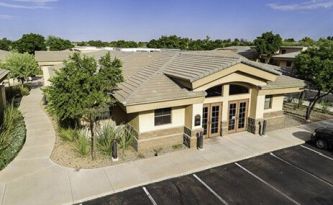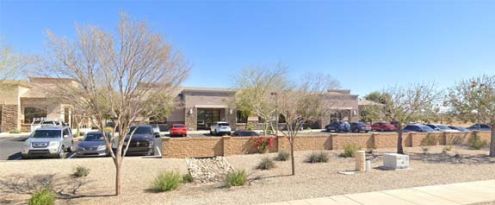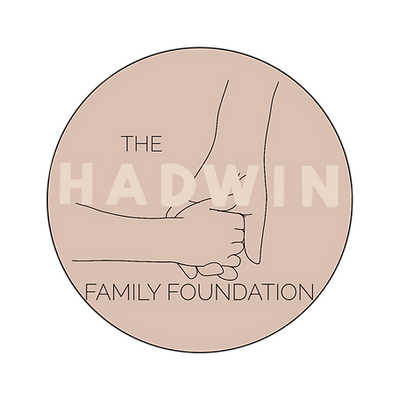Egg Donation Arizona | Find an Egg Donor

Egg donation involves the deliberate use of oocytes (eggs) provided by a donor for in vitro fertilization and subsequent embryo transfer to the recipient. Egg donation is usually non-identified but sometimes a known or related donor will be used. Possible indications for donor egg IVF include:
- Peri/post-menopausal status due to natural ovarian aging.
- Premature ovarian failure (POF) (menopause before age 40) due to genetic factors, immune dysfunction, or ovarian injury due to surgery, chemotherapy, or radiation.
- Diminished ovarian reserve (DOR) with history of poor response to ovarian stimulation, poor egg and embryo quality (including chromosome abnormalities), or otherwise unsuccessful IVF attempts using one's own eggs.
- Avoidance of genetic problems carried by the egg, such as a chromosome rearrangement, Fragile X, or Huntington's Disease, leading to a high chance for an affected child or a lower chance of obtaining healthy embryos using IVF with PGT.
- Single or gay males who wish to become genetic fathers.
The ACFS Donor Program
ACFS has one of the longest-standing donor egg IVF programs in Arizona. ACFS egg donors must apply to participate in the program. Suitable candidates between the ages of 21 and 30 are carefully screened with a detailed personal and family health history, physical exam, ultrasound, genetic screening, psychological assessment, and infectious disease testing. Once a donor has met all of the criteria for a donation, the donor is able to start their donation cycle to our frozen egg bank.
ACFS donor egg recipients will receive full access to our donor profiles to aid in their selection of a suitable donor. The donor profiles include photos of the donor and family history. If the recipients select a “fresh” cycle, then the donor is contacted to confirm her availability. The donor will then undergo the process of ovarian stimulation and egg retrieval. Egg donors frequently produce 15-20 eggs or more per procedure. When doing a fresh cycle, most patients using donor eggs can expect to obtain multiple top-quality embryos and will be able to have one or more children from the process. If a patient selects a “frozen” cycle, then they are able to purchase frozen donor eggs from our egg bank. The donor eggs are then thawed to create embryos. Most often, a single top-quality embryo will be transferred to the recipient's uterus per American Society for Reproductive Medicine (ASRM) guidelines.
We have frequently heard that other clinics tell patients not to do preimplantation genetic testing (PGT) when using donor eggs. While we are in complete agreement that the odds of transferring a chromosomally normal embryo are much higher with untested embryos from donor eggs, typical success rates are 40-50% without testing, versus greater than 80% with euploid blastocyst transfer at our center. Therefore, most patients using donor eggs at ACFS will still choose to use preimplantation genetic testing.
We understand that finding the right donor is extremely important to families who have chosen to use donor eggs. If ACFS does not have a donor to suit your specific needs, we are happy to work with a donor egg agency or egg bank of your choice. Agencies may be able to assist in finding a donor who meets your specific criteria but is more expensive than our in-house fees. Egg banks are convenient in that the eggs are already frozen and ready to be shipped to ACFS for thawing and fertilization. The main downside of using banked frozen eggs is the cost vs. opportunity ratio. Compared to the 15 or more eggs you might receive using a fresh donor, most banks ship just 6 eggs at a time for a similar total cost. While it is not uncommon to be able to have 1-2 children from six banked donor eggs, the numbers do not leave a lot of wiggle room in your favor. For these reasons, we believe that purchasing 6 or fewer donor eggs is most useful for parents seeking specific donor characteristics that ACFS donors are unable to provide, for those who would be happy with no more than one child, or for those who are willing to purchase extra eggs to grow their family further.
High Success Rates
There are two main reasons why donor egg IVF is so successful:
- It's all about the egg. Donors reliably produce more healthy eggs and chromosomally normal embryos than reproductively older women.
- The age of the uterus does not impact the odds of achieving a pregnancy. This is why we can transfer an embryo from a 24-year-old egg into a 44-year-old woman's uterus and give her the same success rates as a 24-year-old undergoing the same procedure.
Donor egg recipients can expect the same exceptionally high rates of pregnancy per embryo transfer using PGT as the rest of our IVF patients.
Deciding to Use Donor Eggs
Our team at Arizona Center for Fertility Studies recognizes that the decision to use donor eggs can be difficult. Some people question why they would want to carry a pregnancy and have a child from someone else's egg, or whether they should consider adoption instead. While adoption is a truly wonderful choice for some families, there are some important distinctions between donor egg IVF and adoption:
- With donor eggs, the recipient still plays a pivotal role by carrying the pregnancy and delivering the baby.
- With donor eggs, the sperm provider can still share a genetic connection with the baby.
- With adoption, neither parent shares a genetic connection to the pregnancy, and it is unknown how the baby was treated during pregnancy or after birth.
- Donor egg recipients are birth parents. Recipients experience bonding with the baby while the baby is still in the womb and from the very first moments of life.
- Adoption can take years and often costs thousands of dollars more than donor egg IVF.
- Many adoptions fall through, causing additional emotional upset and frustration for families who have already been struggling with infertility.
- Because the genetics of the egg donor and sperm provider is known, recipient parents influence their child's genetics and environment from the moment of conception.
In conclusion, the decision to proceed with donor eggs is a very personal one and can be extremely difficult. Once a patient makes that decision, however, we have seen time and time again that they will rarely ever look back. Instead, when their baby is born, and they are finally holding their child, they will wonder why it was so difficult to make a decision in the first place.
Letter to an Egg Donor
Letter to an egg donor from one of our patients
"As I cannot contact you directly and talk to you face to face, I'm writing this letter anonymously to let you know just how important and significant your decision is to others. My arms have ached to wait for that special child to arrive that would bring new meaning and significance to my life, and create the family I have always wanted. Even as you read this, you are getting very close to having that dream of creating life come true for us. You have put your body through daily injections. My eggs could not be used. This means that the chance of creating a life that is most wanted and would be most cherished cannot happen without your help. It is the gift of hope and life itself. Your gift could be the most loving and gracious gift that you will ever give to a fellow human being. I assure you that the child that could develop will be loved and cherished. They will be raised with true social consciousness and environmental awareness. By their very presence, they will make the world a better place, having been given a rare and special chance to be here."
Are you interested in becoming an egg donor?

Once your application is complete, our donor egg coordinator will contact you to set up a screening appointment and answer all of your questions.
Donor Embryo Program at Arizona Center for Fertility Studies
Arizona Center for Fertility Studies has a successful and demanding donor embryo program. Donor embryos come from patients who have extra frozen embryos remaining after successfully completing their families and who make the generous decision to donate their surplus embryos to other patients who may need them.
Donor embryos offer infertile patients the chance to successfully achieve a pregnancy and to share in the parenting experience from conception through childbirth and beyond. Patients may be drawn toward donor embryos because of the lower cost compared to donor eggs because the couple needs both donor egg and donor sperm or because the couple "feels better" that neither one is using their genetic material. Many also prefer the idea of using an embryo that would otherwise be discarded. Whatever the motivations, donor embryos represent a wonderful opportunity for recipients to start or grow their families.
ACFS patients who want to receive donor embryos are put on a waitlist. When a donated embryo becomes available and a recipient is number one on the list, they are offered the opportunity to select embryos. We can provide a physical description of the donors and their past medical history, but the information available is not quite as extensive as the profiles available for egg and sperm donors. We strive to provide as much detail as a family needs to accept or decline the embryo while retaining our extremely generous donors’ identifying information.
Success rates for donor embryos rest entirely on the age of the oocyte provider and the quality of the resulting embryo. Given the evolution of our IVF program toward IVF/PGT, most of the embryos becoming available for donation today are day-5 or day-6 blastocyst embryos that have been chromosomally tested. These embryos hold the greatest potential to result in a successful outcome for donor ACFS embryo recipients. Our success rates for the transfer of a single chromosomally normal embryo currently exceed 70%.
If you want to learn more about donor eggs or donor embryos, call (480) 860-4792 to speak with our donor coordinator.











